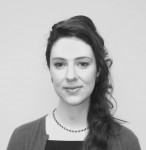Updated
How Morocco and the State Department #ChallengeExtremism – Jordana Merran
Jordana Merran, MAC
June 19, 2015
Over the past week-and-a-half, 25 “women who are leading efforts to combat violent extremism in their communities in Europe, the Middle East, North Africa, and South and Central Asia” have been touring the United States (Washington, DC; New York; and San Francisco, specifically) as part of the State Department’s latest International Visitor Leadership Program, “Women Preventing Violent Extremism.”
“We have a renewed focus on [CVE—countering violent extremism] programming, where we connect people to people,” explained Nathan Arnold of the State Department’s Bureau of Cultural Affairs. “It’s part of our overall strategy to counter the violent rhetoric that’s out there—bring people together from all different walks of life and from all different regions of the world to interact with each other and meet with Americans who are trying to tackle these issues.
“In this case, we’re trying to launch a global network of women to collaborate and talk to each other,” he said.
Among the participants is a young Moroccan woman, Souad Ahmadoun, a political science doctoral student at Galatasaray University in Istanbul and a Research Assistant at Carnegie Middle East Center in Rabat, where she studies the experience of violent extremism in North Africa.
“It’s very important to hear from countries who have known a certain experience of deradicalization,” she said in an interview with MAC last week. “We try to explain to people who don’t understand the process of radicalization or think it is the same in every case that there are a lot of specificities in each group, society, and political context.
“In Morocco and Tunisia, for example, it’s mostly a form of political expression. In Western Europe, it’s totally different. Imams and mosques play a role in radicalization [there].”
Of particular interest to her and her colleagues is the foreign fighter phenomenon.
“We try to learn about their profiles when they return: we try to understand the categories, the classifications, the processes of radicalization and how these happen. And we also work on the processes of deradicalization, especially those in Denmark and Saudi Arabia. We try to find certain models, certain projects,that we can implement in North Africa.”
Ms. Ahmadoun believes that women can and must play a critical role in CVE initiatives.
“First of all,” she explains, “There is an important number of girls who have submitted to the process of radicalization. At the same time, women play an extremely important role in education as mothers, professors, activists. Women are close to the young and can recognize when these youth begin to become radicalized. Women play an important mediatory role between youth and the institutions which [offer deradicalization programs].”
Other countries represented in the program include Bangladesh, Bulgaria, Croatia, Denmark, Egypt, Georgia, India, Italy, Kazakhstan, Kosovo, Kuwait, Kyrgyzstan, Lebanon, Macedonia, the Maldives, Norway, Pakistan, the Palestinian Territories, Poland, Slovenia, Switzerland, Tajikistan, and the United Kingdom.
For more on Morocco’s counterterrorism work and the role of women therein, don’t miss our security fact sheet, or this PBS Newshour segment on Morocco’s innovative mourchidate program.
